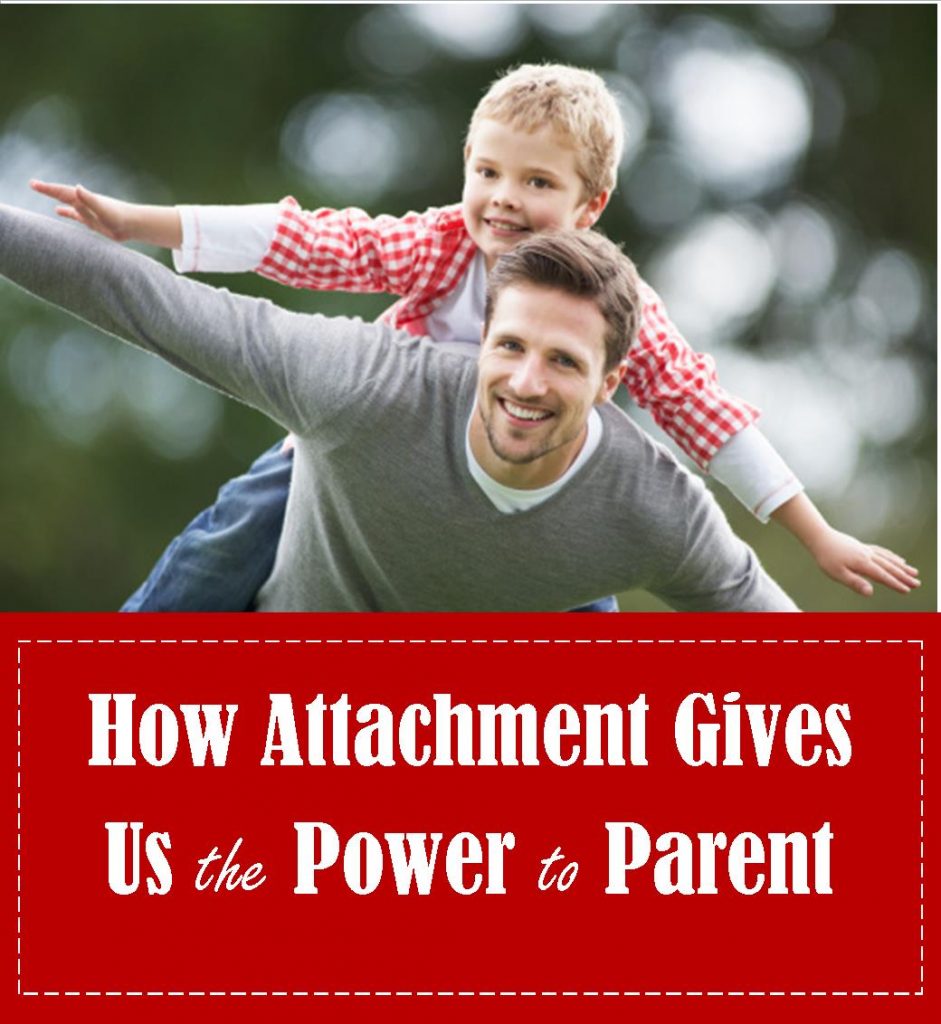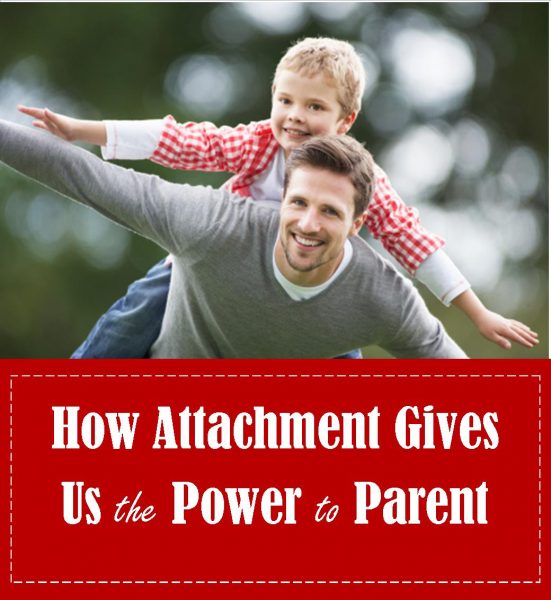
“For I am the Lord, your God, who takes hold of your right hand. It is I who say to you, ‘Fear not, I will help you.'” -Isaiah 41:13
“Before Jem looks at anyone else, he looks at me . . .” -Atticus Finch in To Kill a Mockingbird, ch. 30
In this podcast episode, I explain how attachment gives us the power to parent. Attachment facilitates dependence: our child looks to us to meet his needs for closeness, significance, and safety. This dependence makes our child receptive to us in at least 3 ways:
1. Our Child Wants to Be Dear to Us
Children (indeed all humans) resist being coerced and pushed around by anybody they aren’t attached to. This keeps them safe. However, a problem arises when our child isn’t attached to us, and he perceives our guidance and direction as coercion. Securely attached children are easier to parent partly because they want to be follow the parent’s lead and they want to be good for the parent.
2. We Become Our Child’s “Home Base”
One the greatest blessings of attachment is that it creates a secure base for the child. Why does he need a base? So that he can stretch beyond his boundaries to explore his world. It gives him courage. Without attachment, he will cling and whine, because he’s not sure he’ll be okay.
When people remark that a child is “too attached,” they misunderstand what they’re seeing. Children who are chronically clingy and frightened, unable ever to leave their parent’s side, aren’t too attached; they aren’t attached enough. They may be insecurely attached or attached too superficially; they may feel the parent’s care is very tenuous.
Securely attached children seek out the parent; when the parent fills their attachment cup, it actually puts the child at rest emotionally. These children will naturally venture forth from the parent’s side, exploring their world, trying new things.
3. We Become Our Child’s Compass Point for Values and Morality
A strong attachment to us helps our child get his bearings through us; he looks us to for cues about is valuable, good, and true. When parents are the child’s compass point, the child follows the parents lead in terms of morality, faith, and culture. Without a secure attachment, the child will look to replacement attachment figures, such as peers and movies, to build his value system.
The Big Picture
Children are meant to be raised hierarchically with the child depending on the parent, and the parent depending on God. Children aren’t meant to depend on one another to get their emotional needs met.
Resources
- The Anatomy of Dependence by Takeo Doi. A fascinating (though somewhat technical) exploration of the differences between notions of dependence in Japanese culture and self-reliance in Western cultures. Takeo Doi perceives a universal human need for “passive love”; we all need to be able to take for granted the indulgent, generous care of a few special people.
- “The Power to Parent Is Slipping Away,” chapter 4 in Hold On to Your Kids: Why Parents Need to Matter More Than Peers by Gordon Neufeld.
- Signs of Emotional Health: The Venturing Forth Spirit. My article about how the secure base of attachment nourishes our child’s emotional health.

